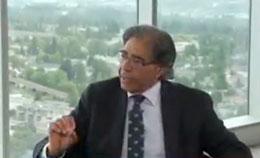Burnaby includes caste as a protected category

By Shilpashree Jagannathan
New Canadian Media
Mayor and council in Burnaby, B.C. have voted to add caste as a protected category in the city’s code of conduct. The motion, tabled by Councillor Sav Dhaliwal, was passed unanimously to include caste as a protected category in city policies.
This follows two recent steps taken by Canadian jurisdictions to ban caste-based discrimination specifically.
Last month, the British Columbia Human Rights Tribunal penalized two people for using casteist slurs against a person belonging to a low caste $9,000. In March, the Toronto District School Board (TDSB) also voted in favour of adding caste as a discriminatory category in its policies. TDSB has yet to write to the Ontario Human Rights Commission to create a framework for implementation.
“I thought things are better in Canada. It was naïve of me to believe so. I was made aware of people continuing to practice caste and was very disheartened to know,” councillor Sav Dhaliwal told New Canadian Media over the phone on Tuesday. “At Burnaby city council, we have included other categories of discrimination based on colour, last name, gender, faith and religion. Now caste will also be included.”
“As a minority, I understand what it means to be discriminated against, as I have experienced it myself. To learn that we are discriminatory is not ok, so we had to take some measures to include caste as a protected category,” he added. Dhaliwal said he has been tracking recent developments like Seattle banning caste-based discrimination and the B.C. tribunal case.
“These recent developments, of course, spurred action on our part. We hope more city councils in Canada will adopt similar action to ban caste,” Dhaliwal said.
The caste system is a rigid South Asian social structuring system that has existed for thousands of years and separates people into different social groups based on a hierarchy at birth. A person’s caste can be identified by their last name, family background, food habits, occupation, or racial profile. People in “lower castes” have historically been relegated to jobs that are deemed menial, and are afforded lower social status. In Hinduism, those at the bottom of the hierarchy are called Dalits or “untouchables,” and versions of the caste system exist among other religious groups in South Asian countries.
Burnaby Council will soon create a policy framework to teach its employees, councillors, and managers about what caste is and how discrimination based on caste looks. Staff will be trained to ensure they are aware of caste bias, if any, for internal city policies, hiring, promotion, rewards, and wages.
Caste-based policy changes have seen some opposition from certain South Asian communities. Canadians for Hindu Harmony and Canadian Organization for Hindu Heritage Education (COHHE), ran an online petition for parents in Toronto to mobilize support against the TDSB vote.
These organizations said they oppose caste discrimination being added to official policies because there is no data on the existence of casteist practices among South Asians in Canada. The groups believe current laws are adequate to address any caste-based bias, and that any further legislation could divide and paint South Asians and Carribeans as bigots.
“I don’t expect any pushback,” Dhaliwal said. “The city of Burnaby is quite progressive. In the event of any pushback, we will stand our ground; the city councillors have been sensitized about the issue, and we have had these conversations, so we are aware.”
Globally and in B.C., anti-caste bias activists celebrate and observe April as Dalit History Month. A few years ago, Burnaby city council declared April 14 the ‘Dr. B.R. Ambedkar Equality Day’ to mark the birthday of Dr. B.R. Ambedkar, who oversaw the drafting of the Indian constitution and was a champion of minority rights and feminist movements in India.
Meanwhile, in the US
In March, a bill which if turned into law, would make California the first American state to recognize caste as a category for protection, alongside sex, ancestry, religion, and gender. The Senate is due to hear the bill on April 25.
Seattle and California are tech hubs, where many South Asians work in big tech companies. One of these, CISCO, has been involved in a lawsuit where an employee accused two of his supervisors of discriminating based on caste. This lawsuit sparked a discussion on caste experiences in the US and was highlighted by the activist group Equality Labs.
In 2018, Equality Labs published a study on caste in the United States. The results of the survey with 1,500 participants concluded that 60% of Dalits reported experiencing caste-based derogatory jokes or comments.
In another study, the Carnegie Endowment for International Peace found in 2021 that "roughly half of all Hindu Indian Americans" identify with a caste group. The study notes that "many Indian immigrants might have brought with them identities rooted in their ancestral homeland, while others have eschewed them in favour of a non-hyphenated 'American' identity. [But] this has not inoculated them from the forces of discrimination, polarization, and contestation over questions of belonging and identity."
The introduction of this bill — following the recognition of caste as a protected category by the Seattle City Council in February — has generated mixed responses.
Samir Kalra, a second-generation Indian American, is the Managing Director of the Hindu American Foundation. His experience as an Indian in the US is very different from Prems. He, and others he's talked to, "haven't seen or experienced" caste. "And that includes people that are coming from traditionally marginalized communities in India. They say that they haven't experienced any issues in the workplace. They don't want to be talking about their identity all the time because they came to America to get away from all of that," Kalra says.









